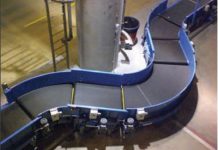
People continue to have difficulty trusting that autonomous cars will make the right decisions, but researchers at the University of Michigan in Ann Arbor have found that carefully timed explanations from the car regarding its actions help build trust.
“What we found is that explanations promote trust with humans, but only if they are given before the car takes actions,” says Lionel Robert, associate professor at the School of Information. “Explanations in and of themselves aren’t necessarily good things, and explanations after the fact don’t seem to do much.”
For example, a car’s intelligence may reveal that an accident ahead has halted traffic. It can either take an alternate route and tell the passenger later, tell the passenger what it will do ahead of time, or ask whether the passenger wants it to take an alternate route. If the explanation was delivered before the action, people in the study had more trust in the vehicle.
“Humans build trust off of expectations,” says Robert. “So, if you say you are going to come today at 2 o’clock, I trust you to come at 2 o’clock. If you didn’t come at 2 o’clock, I think, ‘Oh, I can’t trust this person.’ One way you may try to mitigate a loss of trust is to say, ‘I couldn’t come at 2 o’clock because of blah blah blah.’ Better still is if you call me and say, ‘Something came up and I’m running late, but I am on my way.’ Not only is that a good strategy to minimize my loss of trust in you, it may increase my trust in you.
“It’s the same thing with machines. We have an expectation of what they should do, and when they don’t behave that way, we lose trust in them.”
Anxiety and mental workload are also tied to humans’ trust in cars. One study found that anxiety went down when trust increased. The U-M study found no significant decreases in either from explanations given in advance, which Robert says is surprising, as usually trust comes with a sense of calm that would suggest decreased anxiety.
The study was conducted in a laboratory simulation of urban, highway, and rural route driving at the U-M Transportation Research Institute and involved 32 people. After experiencing the vehicle’s driving, participants were asked to complete questionnaires that measured trust, anxiety, workload, and preference for automated vehicles.
Robert says the ability for automated vehicles to give trust-building advance explanations in the future will depend on better intelligence about road and traffic conditions.
The work was supported by U-M’s Mcity and in part by the National Science Foundation.











